#18th academy awards
Text
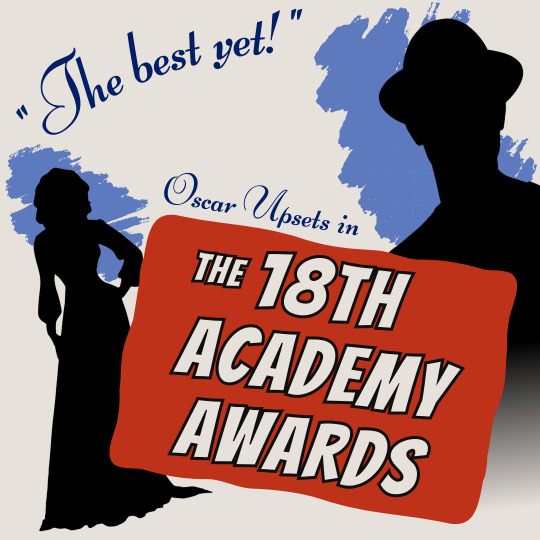
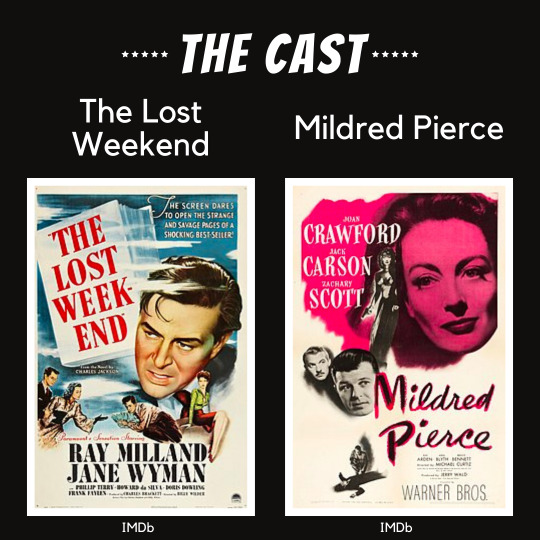

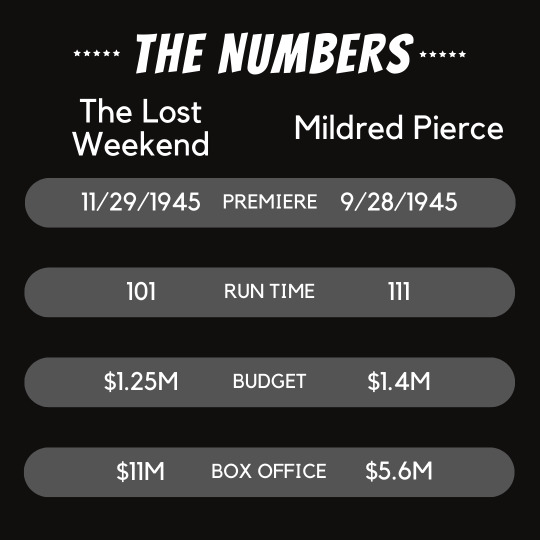
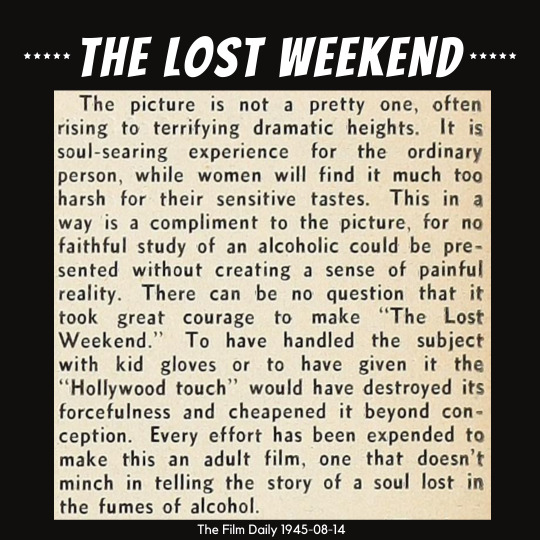
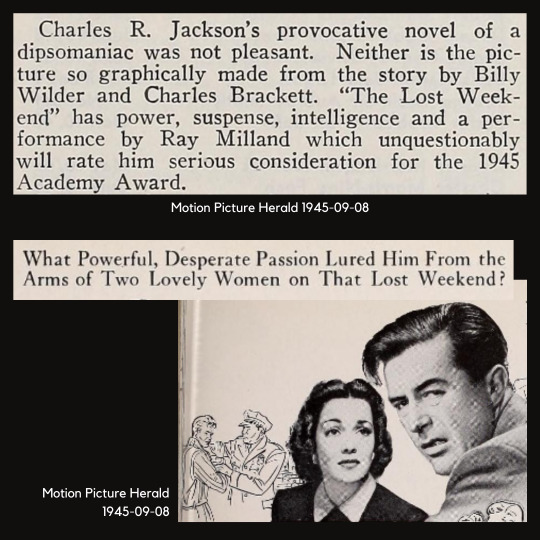
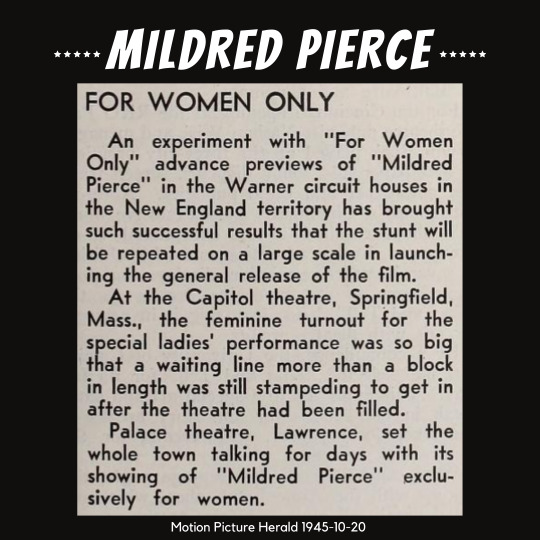


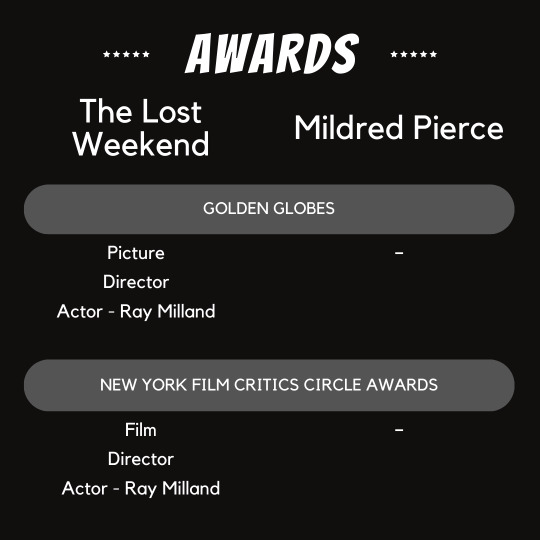
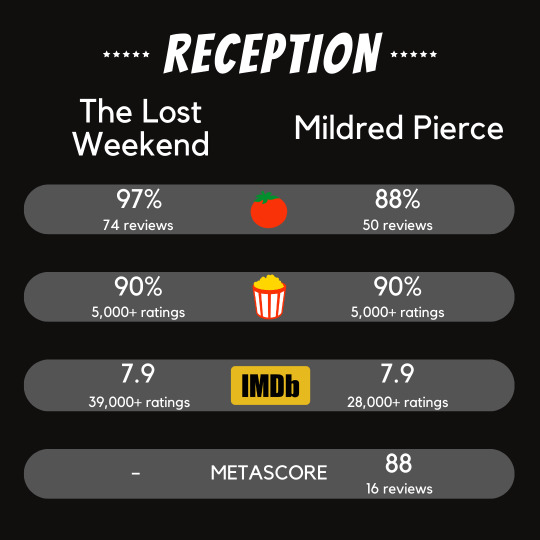
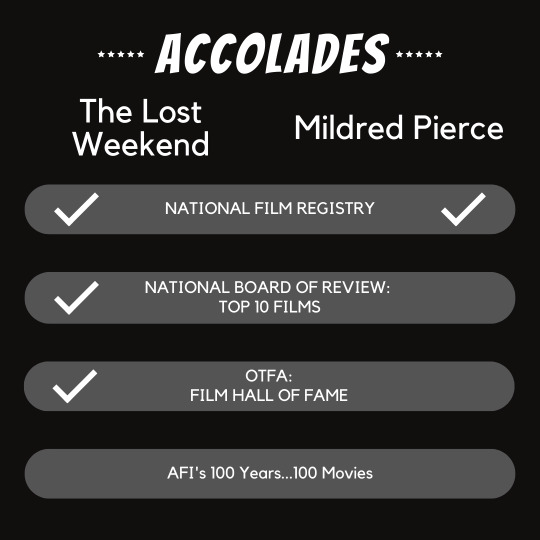
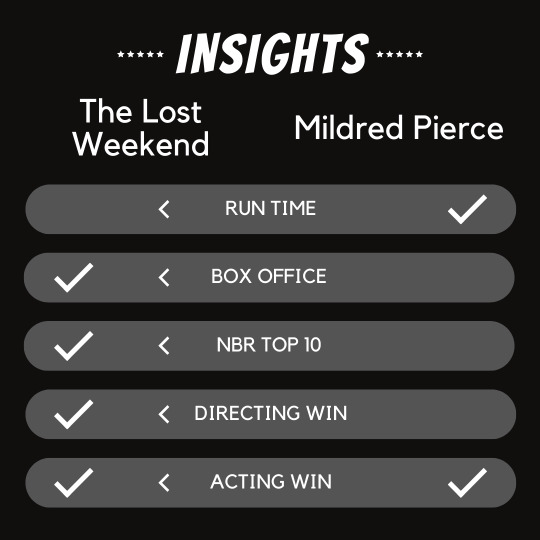
Billy Wilder has brought us a pair of successful, dark dramas for 1945. This year we also see a bit of weird...sexism?
The Lost Weekend was handling a serious topic in a much realer sense than Best Picture winners before it, which some worried may be difficult for women's "sensitive tastes".
Even from a ~woman's perspective~, I found The Lost Weekend to be just exquisite. Ray Milland's acting was superb. Watching his character's struggles in such a short timeframe is quite heartbreaking but expertly done.
Mildred Pierce seemed reminiscent of last year's Double Indemnity. Mainly because a husband was dead and we have to discover who did it through a series of flashbacks. Even with its dark premise, this one was apparently acceptable for women!
Mildred Pierce was equally as great as The Lost Weekend, albeit with far less realism. The daughter is aggressively unlikeable by design, which made the storyline seem a bit unrealistic. It was still a fantastic story with great acting from all players.
The Lost Weekend swept the Golden Globes and the NYFCC Awards for Picture, Director, and Actor for Ray Milland. Clearly critics were in favor of The Lost Weekend, but the general audience finds the two to be on equal playing fields.
*EDIT: The Lost Weekend was added to the OFTA Hall of Fame in 2012. Somehow missed that one.*
Unofficial Review: Both were great. The general audience agrees.
Both films are available (FOR ALL VIEWERS!) on archive.org
#oscars#academy awards#18th academy awards#the lost weekend#the lost weekend 1945#mildred pierce#mildred pierce 1945#1940s#film#1940s film#oscarupsets
5 notes
·
View notes
Text

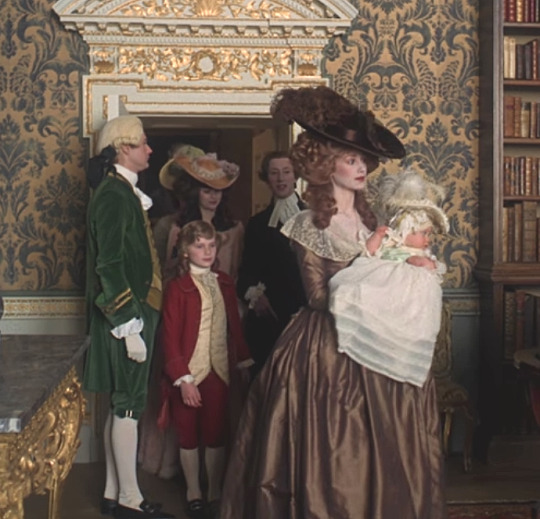
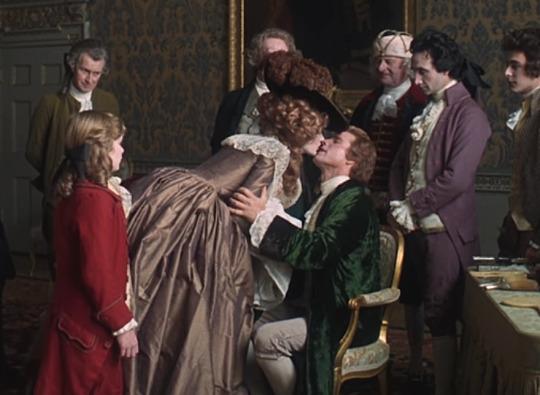
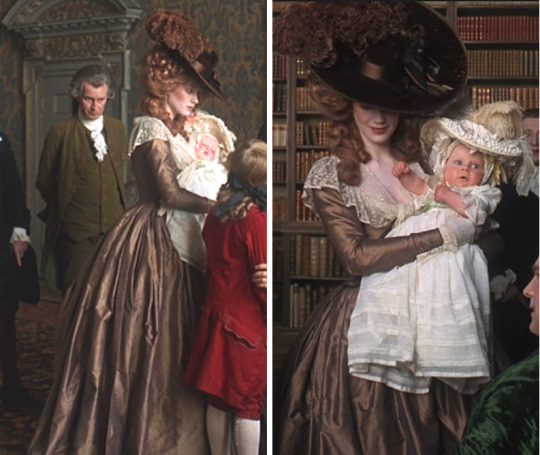
One Dress a Day Challenge
November: Oscar Winners
Barry Lyndon / Marisa Berenson as Lady Honoria Lyndon
Year: 1975
Designers: Milena Canonero and Ulla-Britt Söderlund
It's interesting how there are certain periods that pop up over and over again in the Academy Award-winning costume designs. The 1920s are one of them, and the 18th century (as a whole) is another.
I had never seen this film before watching parts of it to make screencaps. I see why people say that every frame looks like a painting! She could have stepped right out of a Gainsborough canvas. The movie covers the period from the 1750s to the late 1780s.
Lady Lyndon wears this brown day dress in a brief scene where she comes to say goodbye to her husband before going out for the day with her children. The deep frill of lace around the collar is very attractive. But it's the hat that really draws focus, with the satin bow and ostrich feathers.
#barry lyndon#oscar winners#marisa berenson#one dress a day challenge#one dress a week challenge#movie costumes#period film#1975 movies#1975 films#brown dresses#brown dress#18th century costumes#18th century fashion#18th century style#academy award winner#milena canonero#Ulla-Britt Söderlund#elevated by a suitable hat
81 notes
·
View notes
Text
Amadeus, 1984
The man, the music, the madness.
Amadeus is one of those films that leaves you in a profound, meditative state for a day or two. I don’t think I will ever be able to fully articulate the kind of impact it had on me or do proper justice to its review.
Miloš Forman’s widely celebrated masterpiece details the rivalry between composers Wolfgang Amadeus Mozart and Antonio Salieri. Every moment of this film deserves praise. It is not intended to be a biopic, as it’s based on the play Amadeus by Peter Shaffer, which in turn was inspired by the 1830 play Mozart and Salieri by Russian poet Alexander Pushkin. Shaffer even called it "a fantasia on the life of Mozart and Salieri." The play uses a rumor to explore the nature of providence and the tragedy of being consumed by envy.
Amadeus is a three-hour-long odyssey that seems to fly by, made all the more remarkable by the fact that the camera rarely moves. Forman has crafted a magnetic film, with soaring music (by Mozart, of course) placed immaculately, matched only by impeccable performances from Tom Hulce and Elizabeth Berridge, with F. Murray Abraham shining the brightest. The film serves as a cautionary tale and an incredible dialectic on envy, faith, power, and finding joy in life by not raging against things you cannot truly change.
Mozart's nickname, "Amadeus," in Latin means "God's beloved." This is the central theme of the film, as Salieri believes Mozart's music is so perfect that the only explanation is that Mozart is merely a vessel for God, who is truly composing the music, or that God bestowed this ultimate talent upon Mozart. Finally, the most incredible and mind-boggling thing about Mozart is that he was even better than what is portrayed in the film.
The film earned 11 Academy Award nominations, winning 8 Oscars, including Best Picture, Art Direction, Costume Design, Directing, Makeup, Sound, Shaffer’s Adapted Screenplay, and Best Actor for F. Murray Abraham.




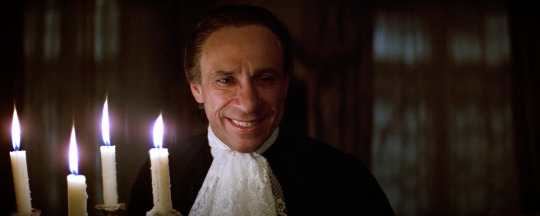
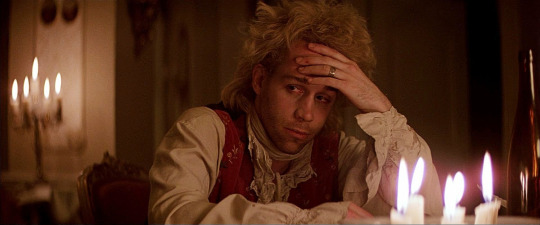
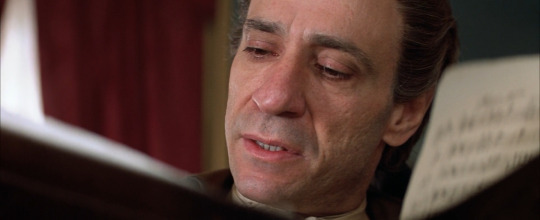
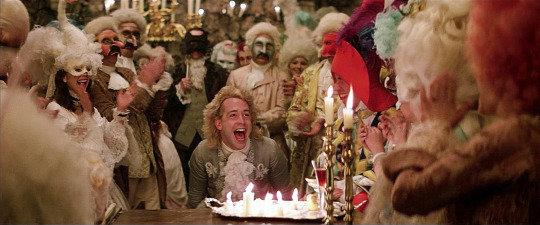
#amadeus#mozart#antonio salieri#film#cinema#film stills#film review#movie review#movies#art#masterpiece#milos forman#oscars#academy awards#academy award winner#tom hulce#f murray abraham#elizabeth berridge#18th century#music#musical#opera#symphony#don giovanni#requiem in d minor#classical music
3 notes
·
View notes
Text
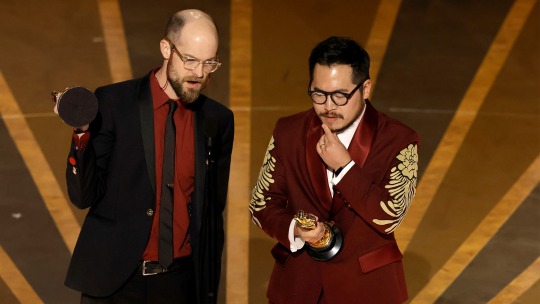
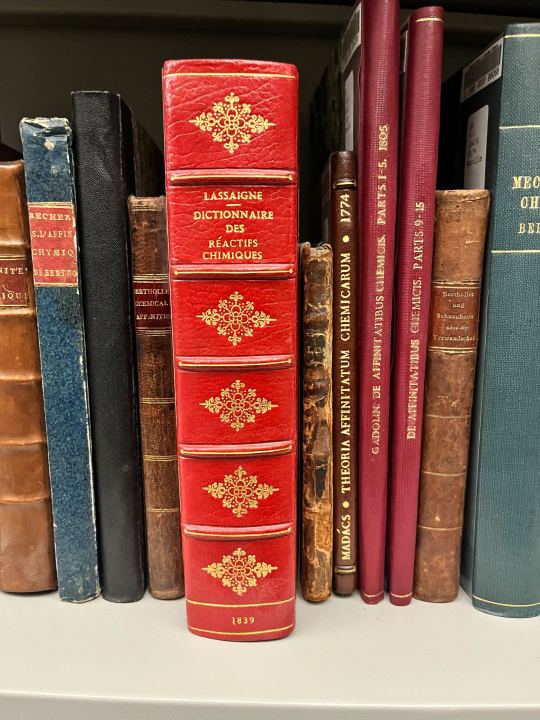
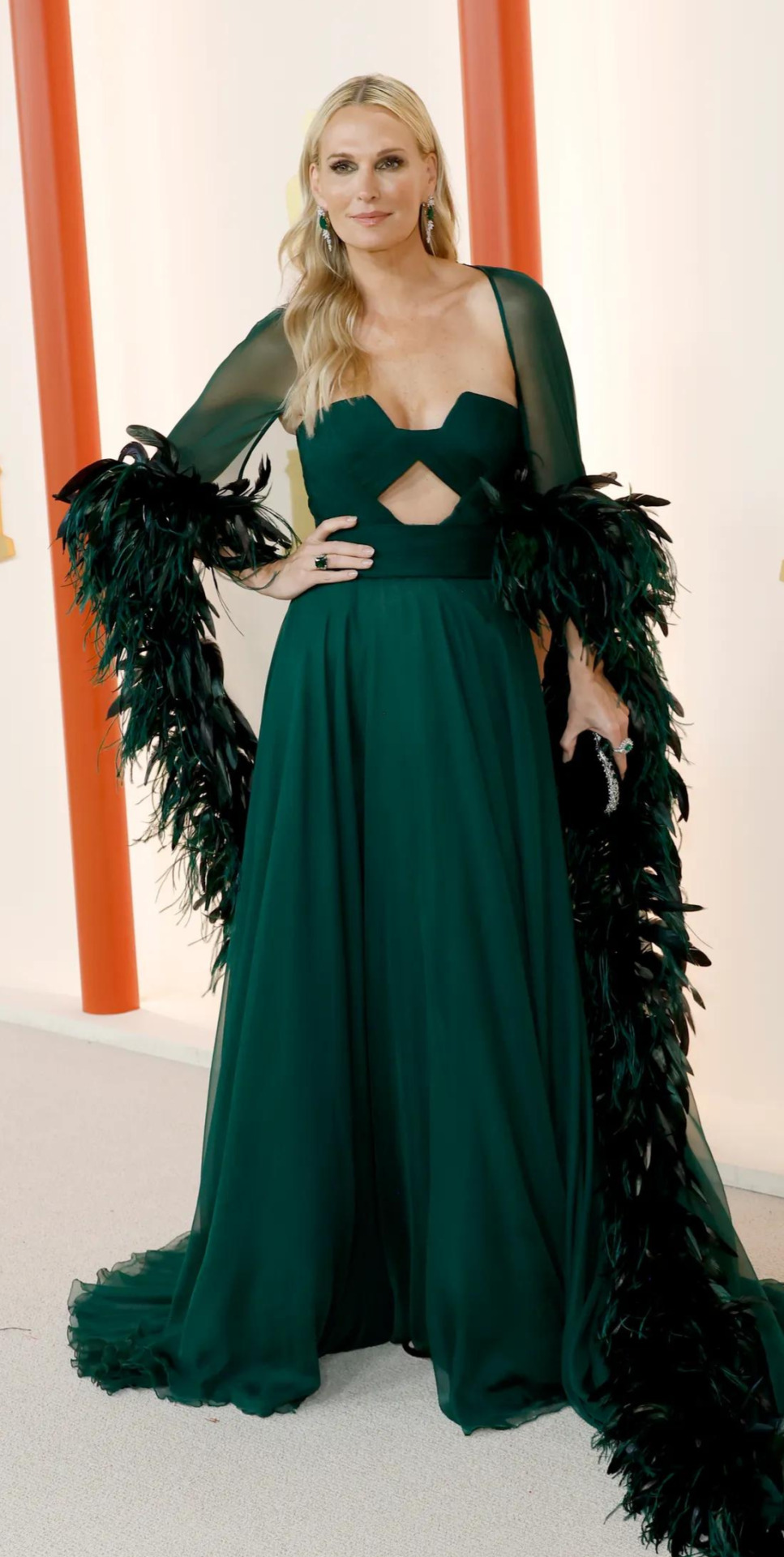

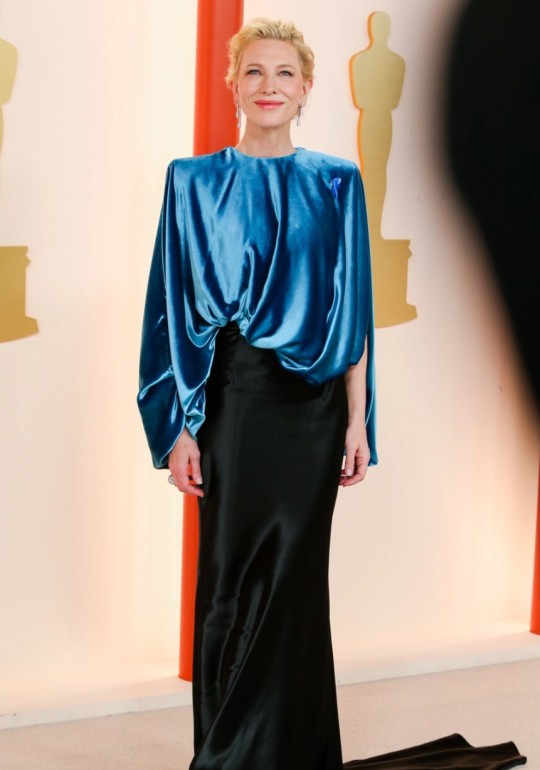



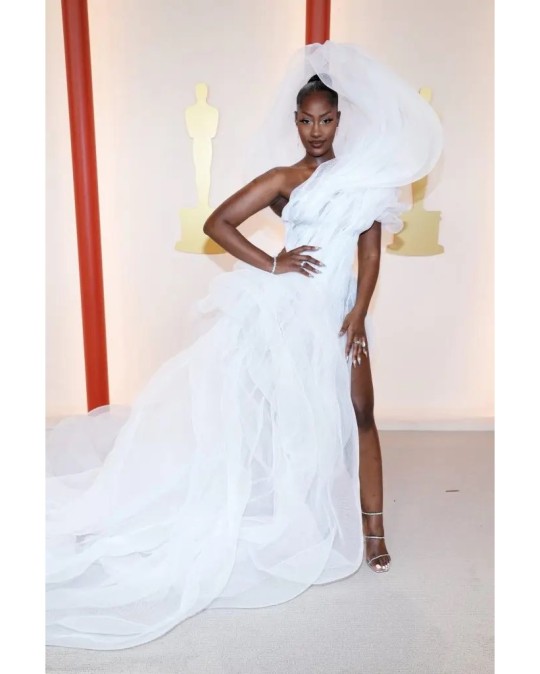

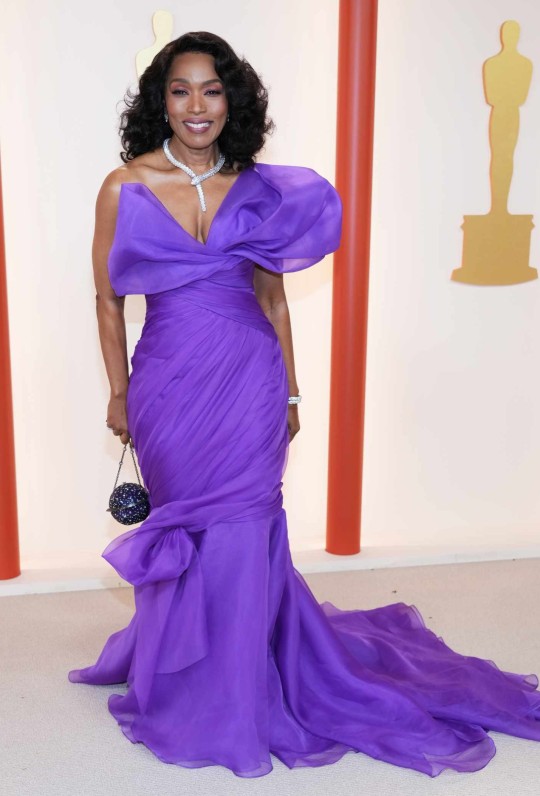

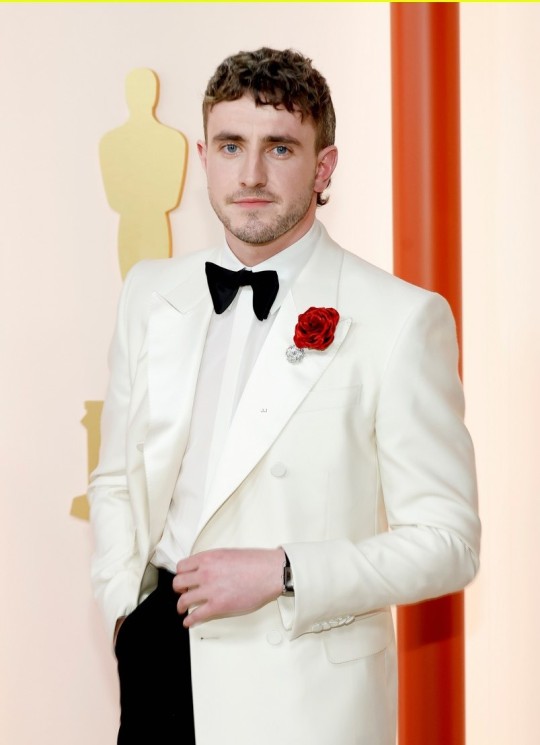
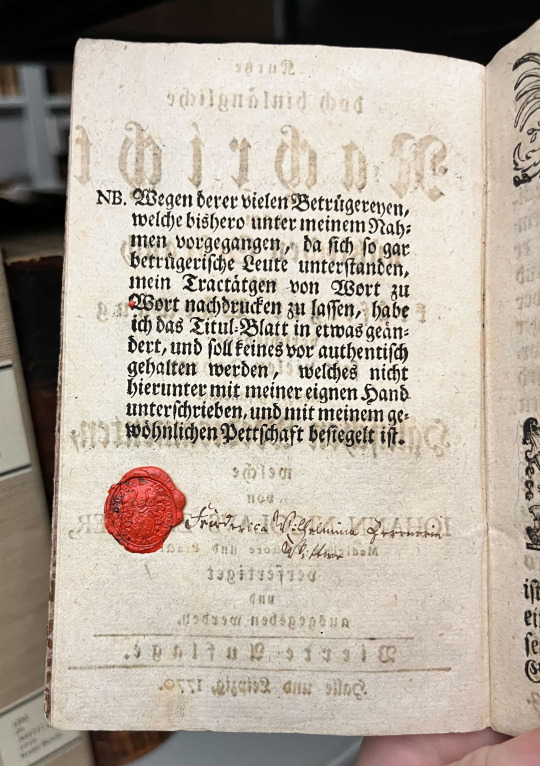
Oscars fashion as books in the Othmer Library
While watching the Oscars, some of the librarians here couldn't help but notice some similarities with our collection.
Daniel Kwan // Dictionnaire des réactifs chimiques (1839)
Molly Sims // Quadro elementar da historia natural dos animaes (1815)
Cate Blanchett // Wiener Farbenkabinet (1794) [this book is currently being cataloged]
Michelle Yeoh // The practical ostrich feather dyer (1888)
Tems // Ser geheim gehaltene (1789)
Angela Bassett // Ausärbungen auf Federn
Paul Mescal // Kurtze doch hinlängliche Nachricht (1770)
#oscars fashion#oscar nominee#oscar2023#academy awards#rare books#special collections#old books#cool books#bookblr#fashionblr#movies#movie stars#17th century#18th century#dye sample books#dyes and dyeing#chemistry#alchemy#feathers#book binding#book covers#othmeralia
49 notes
·
View notes
Text
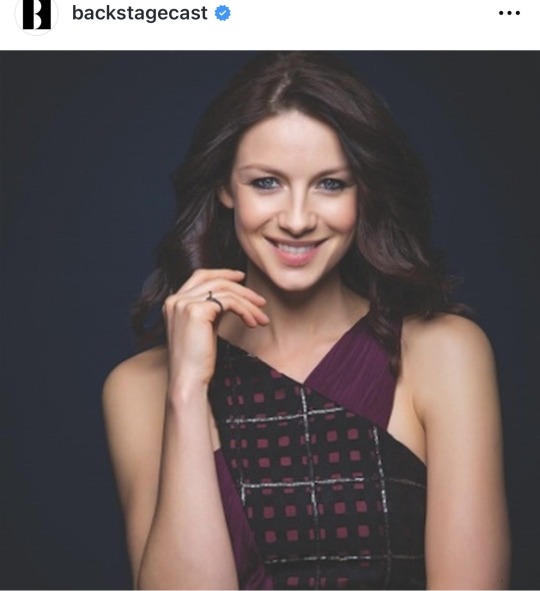

Instagram
•••••
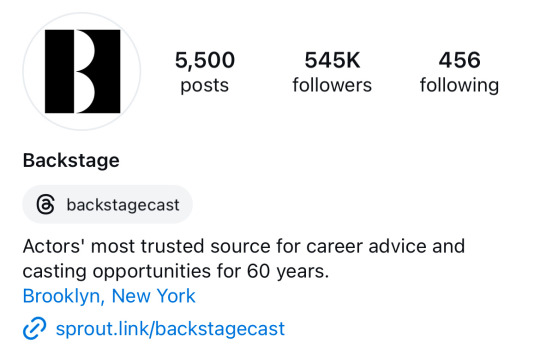
•••••
WHAT THE STARS ARE SAYING
Check out why so many famed actors use Backstage
Trusted since 1960
Founded in 1960, Backstage has a storied history of serving the entertainment industry. For over 60 years Backstage has served as a casting resource and news source for actors, performers, directors, producers, agents, and casting directors.
Over that time, Backstage Magazine has also appeared on numerous TV shows, such as “Mad Men,” “Entourage,” “Glee,” “Oprah,” NBC's “Today” show, Comedy Central's “@Midnight”, NY1's “On Stage,” and “Saturday Night Live,” as well as multiple mentions on shows like “Inside the Actor’s Studio,” “Girls,” and appearances in films such as “13 Going on 30,” the Farrelly brothers' “Stuck on You” and Spike Lee's “Girl 6,” and even a mention in Woody Allen's short-story collection “Mere Anarchy” and Augusten Burroughs' novel “Sellevision” – and Backstage has received accolades from multiple Academy Award-, Emmy-, and Tony-winning actors and directors. (Plus, the hit musical “The Last Five Years” even includes Backstage in its lyrics: “Here's a headshot guy and a new Backstage / Where you're right for something on every page.”)
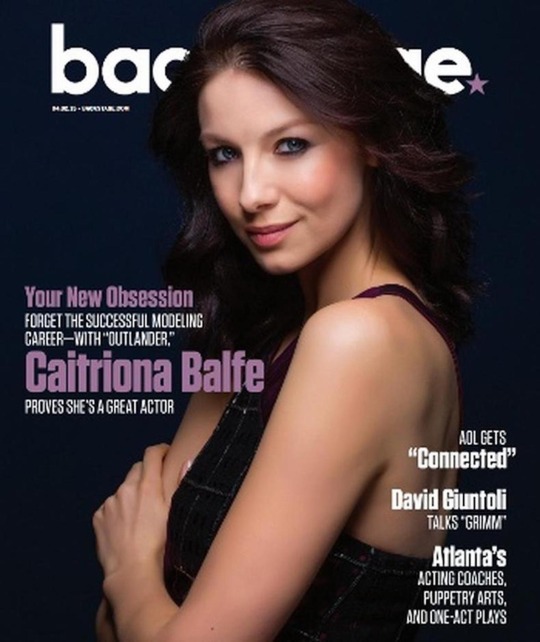
CAITRÍONA BALFE
ACTRESS
"I still get Backstage emails 'cause I still subscribe to Backstage. [Backstage is) kind of the Bible in the beginning, which is amazing. Samuel French and Backstage go hand in hand, you know? You go there for your plays when you're in classes, and then you get your Backstage."
Backstage 1
•••••
Brian’s Note: The following story originally appeared in April 2015. Most recent update is December 2020.
The Gorgeous Determination of Caitríona Balfe
Caitríona Balfe is on the move. That's been true most of her adult life— especially the 10 years she was modeling for Victoria's Secret, Dolce & Gabbana, and others—but as she sits on the rooftop patio of a West Hollywood hotel in mid-March, she mentions that she's pulling up stakes from Los Angeles.
"It just feels silly to have an empty place for 10 months until I figure out what I'm doing with my life," the Irish-born actor says. "I've rented the same place for the last four years and now I have to give it up." Her apartment is being razed to put in condos, but her departure from L.A. is extra poignant considering this is the city where Balfe journeyed when she decided to put aside that successful modeling career and focus on the vocation she'd always wanted: acting.
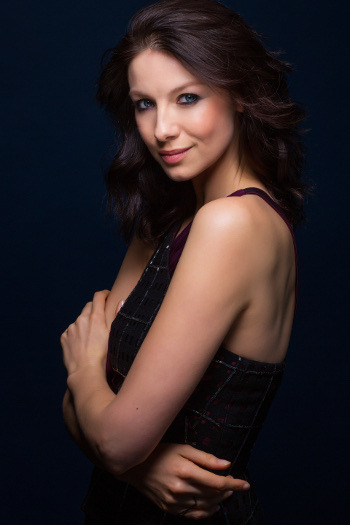
Photo: Luc-Richard Elie
"I've moved so much since I was 18," she says. "I mean, l've lived so many places. New York, I lived in for almost eight years [while modeling], and that's been the longest of anywhere since I left Ireland. But L.A. is where I came and said, 'OK, this is what I wanna do with my life.' "
She refuses to think of her move as a permanent one, though. "I'll be back," she declares, "but it feels really sad. My little apartment, it's got so many memories."
Balfe's sadness is no doubt mitigated by the fact that part of her need to move is due to the precipitous rise in her fortunes. She'll soon be flying to Scotland to shoot the second season of "Outlander," which returns to Starz April 4 to conclude Season 1.
When last we saw Balfe's Claire, the resourceful British nurse who comes home after World War |I only to be inexplicably teleported into the 18th-century Highlands, she was half-naked with a knife to her breast. Don't worry: Claire will get out of that scrape, but more perils await-to say nothing of the emerging multi-era romantic triangle developing between her, the Scottish warrior Jamie Fraser (Sam Heughan), and her 20th-century husband, Frank Randall (Tobias Menzies), who wonders where she's gone.
Based on the much-beloved Diana Gabaldon novels and developed for television by "Battlestar Galactica" rebooter Ronald D. Moore, "Outlander" is an ostensibly lush period-piece-within-a-period-piece drama that's consistently richer and thornier than its romance-novel trappings suggest. And much of the credit goes to Balfe, who had managed small parts in films such as “Super 8” and “Now You See Me” before landing the central role in this adaptation.
In person, Balfe is far less imposing than the steely Claire, who has to weather the dangers of being a woman in sexist, violent Scotland in the 1740s. Cast late in the preproduction of “Outlander”—Moore has mentioned in interviews how hard it was to find the right Claire—she didn’t have time to consider what the role would do to her life. “I’m so bad on social media," she confesses on this warm afternoon, nestled underneath a cabana. "I had set up an account on Twitter maybe a year or so before I got this job and had, I thought, a lot of followers — 250 or something, and most of them are my friends. Within about a month or two, it was thousands of people — and my phone, I didn't know how to turn off the alerts, so it was just going all the time. That was the beginning of the awareness."
Growing up in the small Irish community of Monaghan, Balfe had considered acting from an early age. ("I was devastated that I wasn't a child actor," she says, smiling. But after traveling to Dublin to study theater, she changed course once she received an offer to model. It wasn't a secret passion of hers, but who turns down a trip to Paris? "My parents felt that I should finish college," Balfe recalls, "but l'm slightly headstrong, so l took their advice and I completely ignored it."
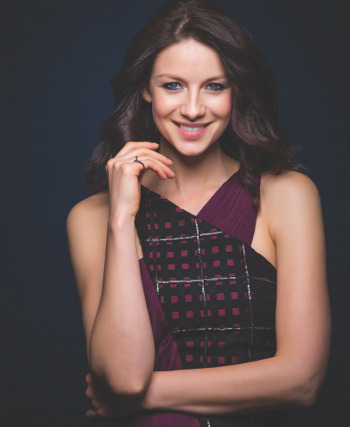
Over the next decade, she lived in France, Italy, Germany, and Japan, her modeling inexperience hardly a detriment. "You'd be amazed how little information or training goes into it," she says. "When I first arrived in Paris, I was told to take a bus to the office. I left my suitcase — I barely spoke any French — and someone took me across the street, helped me buy a Carte Orange. They printed out five addresses that I had to go to that day, and then they sent me off." She still remembers at 18 riding the subway alongside 16-year-old aspiring Russian models, who knew no French or English, homesick and sobbing their eyes out. "That was just the way it was," says Balfe. "You become pretty tough. When I went to Japan, it was similar: They would drive you to their castings, but the minute you got a job, it would be like, 'Here's an address, here's a map. Good luck.' They don't have signposts in English in Japan, so the map and the address are not always very helpful."
Hear Balfe recount her early misadventures in modeling and you can't help but think of Claire, who's equally thrown to the wolves once she arrives in the 18th century amid people wary of the English in general and assertive women in particular. "Honestly, l've been in so many situations in my life where you just are completely displaced," Balfe says. “You have to adapt very quickly and figure it out. I definitely think that informs Claire a lot. It helped me understand her."
Did moving to Paris at such a young age teach Balfe that she can cope in any circumstance? "I think I didn't really realize that until many years later," she replies. "I have a great knack of not thinking about things and just going for it. You learn the hard way sometimes that you're able to get through, but sometimes it's quite tough when you're in a situation where you don't know anyone and you're trying to find your way around cities. But if an opportunity presents itself and it seems like a good idea, l'm just like, 'OK, let's do it, then I'll figure it out.'”
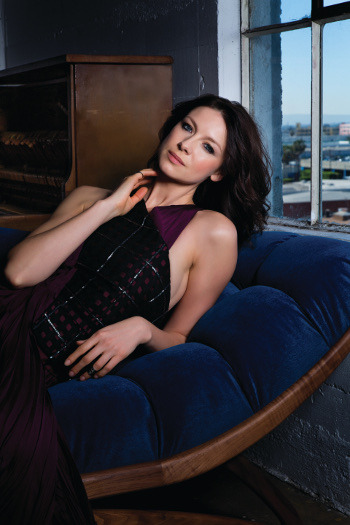
The decision to reconnect with her acting ambitions was conducted just as boldly. Ready to quit modeling, she moved to Los Angeles because a writer she was dating lived there. He was the only person she knew, but she had read a Vanity Fair interview with Amy Adams in which she said she trained with Warner Loughlin. "I could walk to that place from my ex-boyfriend's house," she says, "so l was like, 'Well, I'm gonna go there because I can't really drive. I started from scratch. I didn't have any managers, I didn't know any agents, I hadn't acted in almost a decade." But she just kept taking classes, moving from Loughlin to the studios of Sanford Meisner and Judith Weston. "I think when I first got here, I had a nice little air of delusion: 'It's gonna work out,'" she says with a laugh. “You just don't know how."
And then came "Outlander." By email, Moore admits that he didn't know Balfe's work until her audition tape came unsolicited to his office from her agent. Once she was chosen for Claire, he made it clear how demanding the job would be. “I told her in our first meeting that this was going to be an even bigger responsibility and workload than the normal TV lead," he writes. "Because the story was being told from Claire's point of view, Cait was going to be in every scene, every day for months, which is an extraordinary amount of work, far beyond what most actors are ever asked to do."
Moore's warning didn't faze Balfe. Writes Moore, "After she met with the president of Starz... and it was clear that she was going to land the role, I walked her to the elevator and just before the doors closed on her, I said 'Your life is about to change forever,' and she gave me a grin that was both thrilled and slightly nervous. I never saw her hesitate after that."
She's never hesitated before. As Balfe prepares to say goodbye to L.A. (for now, she thinks back to her early days in the city, trying to convince casting directors that she was more than just a model. "I went on many, many, many, many auditions that were Hot Girl No. 2 — you wanna shoot yourself," she says, laughing. "But, you know, I'm very lucky that l was even getting those auditions in the beginning. And it toughens you up. At least for me, to have that fuel to prove people wrong—it definitely spurs me on and makes me wanna work harder." Then she smiles conspiratorially. "And shove it to them."
Backstage 2
Remember… I told her in our first meeting that this was going to be an even bigger responsibility and workload than the normal TV lead. — Ronald D Moore
#Tait rhymes with hat#Good times#National Actors Day#8 September 2024#Backstage#April 2015#Story last updated December 2020#Instagram
34 notes
·
View notes
Text

30 Days of Classic Queer Hollywood
Day 28: James Dean (1931 - 1955)
"No, I am not a homosexual. But I'm also not going to go through life with one hand tied behind my back." - James Dean when asked about his sexuality
James "Jimmy" Dean was one of the most iconic actors of the 20th century. Despite only starring in 3 films (East of Eden (1955), Rebel Without a Cause (1955), and Giant (1956)), he is one of the most recognizable actors of his time.



This lasting fame is largely due to the fact that he died in a car crash in 1955 at the age of 24, just as he was reaching stardom. He became the only actor to receive two posthumous Academy Award nominations for Best Actor. In 1999, the American Film Institute ranked him the 18th best male movie star of the Classic Hollywood.

James Dean was a bisexual man. He had relationships with many women, including model Pier Angeli and actresses Liz Sheridan, Barbara Glenn, Ursula Andress, and Beverly Wills. He reportedly had private liaisons with men including Marlon Brando, radio director Rogers Bracket, writer William Bast, and director Bob Stevens.

He was relatively open about this with his costars and coworkers. Nicholas Ray, the director of Rebel Without a Cause (1955), is on record as saying:
"James Dean was not straight, he was not gay, he was bisexual... Jimmy himself said more than once that he swung both ways, so why all the mystery or confusion?"

#james dean#jimmy dean#sal mineo#paul newman#nicholas ray#pier angeli#queer#bisexual#queer history#lgbtqia+ history#vintage#gay history#old hollywood#classic hollywood#classic film stars#golden age of hollywood#rebel without a cause#east of eden#giant 1956#1950s movies#colorized#photo enhancement#classic queer hollywood
47 notes
·
View notes
Text
OUR FLAG MEANS DEATH RETURNS ON OCTOBER 5
OUR FLAG MEANS DEATH returns for Season 2 on October 5, with three new episodes. Max will stream two new episodes a week until the season finale on October 26.
Teaser trailer, key art, and more info below!

The eight-episode second season of the Max Original comedy series OUR FLAG MEANS DEATH, from creator-showrunner David Jenkins, Emmy®-nominated executive producer and star Taika Waititi, and Emmy®-nominated executive producer Garrett Basch, debuts with three episodes THURSDAY, OCTOBER 5 on Max. The season continues with two new episodes weekly leading up to the season finale on Thursday, October 26.
Season 2 logline: OUR FLAG MEANS DEATH is based (very) loosely on the true adventures of 18th century would-be pirate Stede Bonnet (Rhys Darby). After trading the seemingly charmed life of a gentleman for one of a swashbuckling buccaneer, Stede became captain of the pirate ship Revenge. Struggling to earn the respect of his potentially mutinous crew, Stede’s fortunes changed after a fateful run-in with the infamous Captain Blackbeard (Taika Waititi). To their surprise, the wildly different Stede and Blackbeard found more than friendship on the high seas…they found love. Now, they have to survive it.
Season 2 cast: In addition to Darby and Waititi, season two stars returning cast members Samson Kayo, Vico Ortiz, Ewen Bremner, Joel Fry, Matthew Maher, Kristian Nairn, Con O’Neill, David Fane, Samba Schutte, Nat Faxon, and Leslie Jones. New additions joining the ensemble cast include recurring guest stars Ruibo Qian, Madeleine Sami, Anapela Polataivao, and Erroll Shand, and guest stars Minnie Driver and Bronson Pinchot.
Season 2 credits: OUR FLAG MEANS DEATH is executive produced by Academy Award® winner Taika Waititi, alongside creator-showrunner David Jenkins. In addition to his duties as showrunner, Jenkins directed the first two episodes of season two. Garrett Basch, Dan Halsted, Adam Stein, and Antoine Douaihy also serve as executive producers. Season two was filmed in Auckland, New Zealand.
youtube
180 notes
·
View notes
Text

TV Shows
Week Ending March 18th, 2024
Hazbin Hotel
The 96th Academy Awards +1
Young Royals
9-1-1 +7
Good Omens -3
The Bad Batch +2
Avatar: The Last Airbender -3
Rise of the Teenage Mutant Ninja Turtles +1
The Owl House -2
Percy Jackson and the Olympians +4
Our Flag Means Death -1
Stranger Things +1
Supernatural -7
Doctor Who -9
Hannibal -3
Danny Phantom -1
Eurovision Song Contest
Phineas and Ferb
Ninjago -2
House MD -2
The number in italics indicates how many spots a title moved up or down from the previous week. Bolded titles weren’t on the list last week.

79 notes
·
View notes
Text
Classical music lovers can debate for hours over which Mozart melody has made the biggest impact. Maybe the first movement of the “Jupiter” symphony, perhaps the Queen of the Night aria from The Magic Flute, or what about the “Eine kleine Nachtmusik” serenade? Those who know the great 18th-century Austrian composer only through the movies have an easier time of it—the sound they’ll remember best may not be music after all but the whinnying, immature, and disobedient laugh heard throughout Milos Forman’s masterpiece Amadeus.
Amadeus, commonly accepted to mean “beloved by God,” was not technically part of Mozart’s name. (He was baptized as Joannes Chrysostomus Wolfgangus Theophilus Mozart, with Theophilus having a similar translation.) After his death, however, the moniker stuck as a way to venerate him. It’s perfect for the title of this movie, in which rival composer Antonio Salieri allows his jealousy over Mozart’s genius to build into a personal war against God. But expanding on some fudged truth is also in keeping with the spirit of the entire project, as the movie’s central conflict is almost entirely made up. (Even better, then, that the original trailer featured the tagline “Everything you’ve heard is true.”)
Based on a Tony-winning play by Peter Shaffer (inspired by a short 1830 play written by Alexander Pushkin, itself inspired by gossip that Salieri was somehow to blame for Mozart’s early death), Amadeus is celebrating its 40th anniversary this year. As such, a new 4K restoration is screening in specialty theaters across North America in advance of a new Blu-ray release. This, plus an eventual availability on streaming, is the first time the version that people originally saw back in 1984 will be available in years. (More on that in a bit.) An upcoming British television miniseries based on Shaffer’s play is in production currently, but we’re skeptical it will have the same magic.
The film’s story is told in flashback, with an old, institutionalized Salieri (played by F. Murray Abraham) “confessing” how he murdered Mozart (Tom Hulce). We are then witness to how Salieri, court composer to Emperor Joseph II (Jeffrey Jones), has his world turned upside down when Mozart bursts onto the scene. His musical instincts are on a level no mortal can comprehend and clearly, Salieri feels, handed down directly from above. But while Mozart’s work is divine, his demeanor is coarse and bratty, which turns Salieri’s understandable envy into an existential rage.
As the winner of eight Academy Awards, including best picture, best director, and best actor for Abraham’s Salieri, Amadeus’s legacy is secure, but any excuse to get more people to see this perfect film is a good one. I can personally report that not one, not two, but three millennial friends of mine came to this movie kind of dragging their feet, watching it only out of an obligation to check every Oscar winner off their list. Each one of them was blown away with just how funny and poignant and entertaining it was.
“I thought this would be boring, not bitchy!” one pal beamed after a recent screening I hosted with Paul Zaentz at New York’s Paris Theater. That energetic spark is evident in the script but catches fire in the movie thanks to its director. Forman’s resumé is one of the best from the 20th century, but Amadeus is something special, not just because it is about a maverick artist who has to do things his way (a recurring theme in both Forman’s life and work) but because the expatriate who fled communist-era Czechoslovakia to follow his calling was able to shoot the movie in Prague and Kromeriz. As Mozart cackled in the face of propriety, so Forman was able to poke his thumb in the eyes of those who had previously censored him.
Forman was born in the town of Caslav in 1932. Both of his parents died in Nazi concentration camps. He attended a school for war orphans where he befriended future filmmaker Ivan Passer and playwright-turned-politician Vaclav Havel. He began working on documentary crews and eventually made short films of his own that blended fact and fiction, getting better material from non-actors than trained professionals. His first feature, Black Peter (1964), focused on a timid teenager, and its follow-up, Loves of a Blonde (1965), was a similarly naturalistic look at awkward romance. Its deadpan, somewhat bleak style ran counter to the splashy films coming out of Italy and France at the time. Both films are early entries to what became known as the Czech New Wave, leading to Forman’s first bona fide masterpiece, The Firemen’s Ball (1967).
While The Firemen’s Ball—Forman’s first film in color—was understood to be a grand metaphor for the inefficiency of the political system at the time, one doesn’t have to know a damn thing about Eastern Bloc history to respect it as an iconoclastic farce not dissimilar from something like South Park. It was immediately banned in Czechoslovakia, but it and Loves of a Blonde were both nominated for best foreign language film at the Oscars.
Forman was in France raising funds for his next project during the Soviet invasion of Prague in August 1968. He was fired from his Czech production company and ended up emigrating to the United States. His first Hollywood film was the 1971 counterculture farce Taking Off (in which square, bourgeois parents try to get groovy with their kids, to embarrassing effect), which led to one of the most influential movies of the 1970s, One Flew Over the Cuckoo’s Nest.
After the anti-authoritarian Cuckoo’s Nest—which won five Oscars, including best picture, best director, best actor for Jack Nicholson, and best actress for Louise Fletcher—came his adaptations of the musical Hair (1979) and E.L. Doctorow’s novel Ragtime (1981). With that all under his belt and his hands on the rights to Schaffer’s hot play Amadeus, Forman went back to Prague in triumph.
Amadeus is set mostly in Vienna; still, Prague, which was generally left intact after World War II, certainly looks good on camera. And Prague was also an important city for Mozart. He made two lengthy visits there and found a very welcoming audience. Indeed, he wrote Don Giovanni with the intention of premiering the opera in Prague, which he did at the Estates Theatre in 1787. And it was at the Estates Theatre where Forman filmed many of the movie’s best scenes—ones of Mozart conducting opera, filmed with the alacrity and exuberance normally reserved for an action-adventure sequence. (The use of pyrotechnics in the Don Giovanni scenes caused a lot of worry on set, what with the old theater’s interior being mostly wood.)
Shooting a Hollywood movie behind the Iron Curtain naturally had some hardships. (Fruit and fresh vegetables, rarities at the time, needed to be trucked in from West Germany.) Given Forman’s background, the eyes of the state were on them. During that recent New York screening, Zaentz, who worked as a production coordinator on the project and is also the nephew of film producer Saul Zaentz, said secret police were essentially hands-off, except for one time. During off-hours, some members of the crew would hang out and watch VHS tapes of Hollywood movies and were unaware that some of those titles had been banned. The company was soon requested to keep to only approved films.
Perhaps more poignant was when they were shooting on the Fourth of July during one of the opera scenes. The Czech crew surprised Forman and the actors during one take. Expecting to hear the music of Mozart play back from a PA system, some well-wishers instead cued up “The Star-Spangled Banner” while others unfurled an enormous American flag. Everyone stood up and sang along, except, according to Forman, the 30 or so secret police who had been dispersed among the extras.
One can easily read the moment as a victory for Forman. Alas, Mozart’s fate was a little different. Though no one knows for sure why he died at the young age of 35—other than the fact that every case of the sniffles had graver implications back in 1791—the movie shows how Mozart’s queasiness with authority shaped him as a hand-to-mouth freelancer and how his lack of a permanent position and persistent money woes were bad for his health. After Amadeus, Forman continued to make movies about troubled-yet-visionary mavericks: Andy Kaufman in Man on the Moon (1999), Francisco Goya in Goya’s Ghosts (2006), and, um, Larry Flynt in The People vs. Larry Flynt (1996).
As for the Salieri yarn? There’s no historical evidence to suggest that the two composers weren’t just colleagues. (It’s true that Mozart did have a paranoid streak and maybe did think that “the Italians” at court had it in for him.) Salieri certainly did not live in chastity out of some pledge to God in exchange for musical inspiration. Indeed, he had eight children. He was also plenty famous at the time of his death and, later in life, was a tutor to Mozart’s youngest son. Nevertheless, no one should let reality get in the way of watching this incredible movie.
This 40th anniversary rerelease is especially exciting for old-school Amadeus-heads as it restores the 160-minute theatrical cut. All one can find out there now is the “director’s cut,” which is 20 minutes longer. As Zaentz explained to me, that version came out in 2002 during the first DVD wave, when home-video distributors were loading up packages with deleted scenes. Rather than have isolated bonus chapters, Forman decided to just release the longer version instead, though never really considered it the definitive cut. However, over time it became the only version in circulation.
While the longer version has a few splendid moments (some backstage zings with Christine Ebersole as Caterina Cavalieri), it also contains one scene that I am happy to see once again excised. In it, Salieri goes a wee bit too far and humiliates Mozart’s wife, Constanze (Elizabeth Berridge). It’s important for Salieri to be a scheming twerp but also someone who still holds your sympathy. The controversial scene only found in the director’s cut pushes him too far into the role of villain.
So sometimes edits are important! It is said that Mozart never revised, that he took dictation from God. As with so much else about the man, the truth is a little different.
42 notes
·
View notes
Text

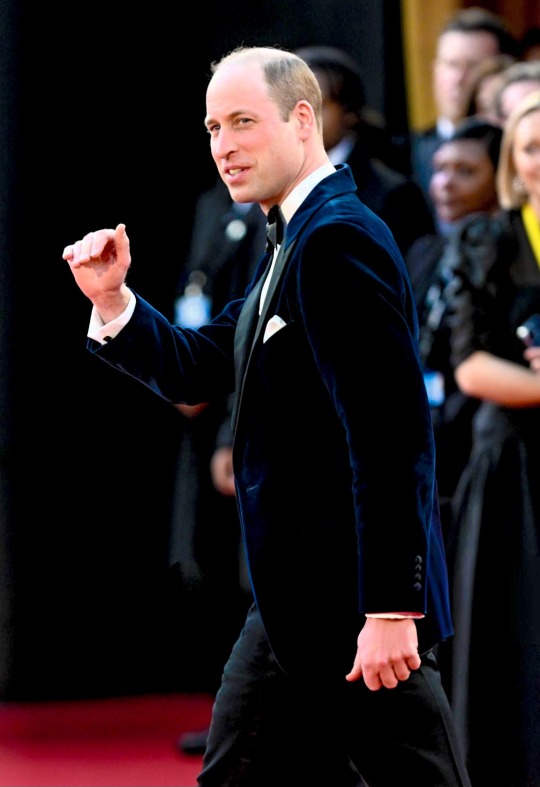


The Prince of Wales attends the EE British Academy Film Awards (BAFTA), at Royal Albert Hall in London, England -February 18th 2024.
#prince william#prince of wales#british royal family#england#2024#february 2024#bafta 2024#bafta#the wales#my edit
68 notes
·
View notes
Text

Nicola Mary Tina Coughlan,
born on 9 January 1987 in Galway, Ireland, and raised up in Oranmore.
At the age of 4, she realized her dream to be an actor after watching an videotape film of "The Wizard of Oz". Likewise, she grew up watching her older sister perform in a school play. She attended Scoil Mhuire for primary school and Calasanctius College for secondary school. She graduated with a degree in English and Classical Civilization from the National University of Ireland, Galway. She then went on to train in England at the Oxford School of Drama and Birmingham School of Acting.
At the age of 9, in 1997, Nicola Coughlan had an uncredited role in action thriller film My Brother’s War. Coughlan was able to take the day off school and was paid £30 to feed swans, though she was scared of them. In 2004, she started her career with a role in Tom Collins’ short film, The Phantom Cnut, a revenge comedy. In the following years, she did various voice works in animated series. She was suffering from depression during this period and her family helped her through the entire process.
"There wasn’t one thing that turned it around for me — I got myself out of that stage very slowly."
Due to financial difficulties, Nicola moved home to Galway, Ireland, to work part time at an optician and get back on her feet. During that time, she responded to an open casting call on Twitter for Jess and Joe Forever at The Old Vic in London, and she just so happened to land the role of Jess. The show has a special place in her heart, as it was her first real break into the acting industry.
In 2018, Coughlan began playing Clare Devlin, one of the main characters, in Derry Girls. This sitcom is set in Derry, Northern Ireland, in the 1990s. The series was broadcast in January and February 2018 on Channel 4. But it was after its rerelease onto streaming platform Netflix in December of the same year that the show gained an international audience and an instant popularity.
In the same year, she also played Hannah Dalton in Hulu’s Harlots. The period drama television series is set in 18th-century London. This year also marked her West End debut in The Donmar Warehouse’s production of The Prime of Miss Jean Brodie. Evening Standard named her as “one of the Rising Stars of 2018”. Unfortunately, not everyone was a fan and Nicola was forced to call out a critic for the British Theatre Guide, Philip Fisher, due to his rude comments about her weight. In a poignant op-ed for The Guardian, where she demanded for critics to
“Judge me for my work in Derry Girls and on the stage, not on my body.”
In the following year, she made headlines again for rebutting the Daily Mirror’s comment on her 2019 British Academy Television Awards look as not the most flattering. She tweeted “I mean incorrect @DailyMirror I look smokin’, sorry bout it”. In July 2020, she auctioned off this Alex Perry dress and €5,000 raised funds went towards LauraLynn Hospice, an Irish children’s hospice which provides specialist palliative and supportive care services.
In 2019, it was announced that Coughlan had been cast in the Netflix series Bridgerton, which premiered in late December 2020. Nicola only had to audition once, and was soon given the role. In this period-drama series based on the best-selling Julia Quinn book series of the same name, Coughlan played Penelope Featherington. The girl is a reluctant debutante and youngest daughter of a nouveau-riche family in Regency-era London. Soon after its released, it was announced that over 63 million people had watched the series.
Nicola has remained an avid advocate for LGBTQ+ and Women’s Rights. Back in 2015, she went from door to door campaigning to legalize same-sex marriage in Ireland. “This was pre anyone knowing who I was, so I didn’t have a big platform to do stuff, but I did what I could,” she told The Guardian in December 2020. She also campaigns for the rights of women and LGBTQ+ communities, including with This Is Me in Ireland (which is run by her friend Noah Halpin) and The Rainbow Project in Northern Ireland. As she explained to Bustle during a December 2020 interview,
"Playing a gay character in Derry Girls and same-sex marriage being illegal until this year, I wanted to lend my voice. It’s not a cozy issue that’s easy to talk about, but I’ve got friends who have suffered because of legislation like this."
In February 2019, Nicola and, her Derry Girl’s co-star, Siobhan McSweeney women led 26 with their suitcases across London’s Westminster Bridge to demand the decriminalization of abortion in Northern Ireland. They represented the estimated number of women a week who had to travel to England to access abortion. Despite many celebrities calling for a boycott to filming in Northern Ireland, Nicola refuses. Of the matter, she said: “Just to state I would never boycott working in NI, I absolutely love working there and feel like my time is better spent supporting the women there by speaking out in interviews, protesting, etc.”
youtube
#nicola coughlan#bridgerton season 3#derry girls#harlots#big mood#pop icon#netflix#shondaland#polin#polin bridgerton#Youtube
24 notes
·
View notes
Text




One Dress a Day Challenge
June: Brown Redux
The Duchess / Hayley Atwell as Bess Foster
Bess wears a good deal of brown in this movie (see also her elegant brown evening dress). This would be a day dress for an outdoor ramble. Georgiana's dress from the same excursion is covered in this post. Both ladies are seen in the stripes that were so fashionable at the time.
It's been suggested that this dress either was inspired by a similar dress worn by Marisa Berenson in Barry Lyndon (1975) or is the same actual dress with some minor modifications. See the picture below for comparison.

#the duchess#hayley atwell#brown dresses#one dress a day challenge#one dress a week challenge#movie costumes#period film#oscar winner#18th century style#18th century costumes#18th century fashion#2008 movies#2008 films#michael o'connor#academy award winner#barry lyndon#stripes#brown dress#brown redux
14 notes
·
View notes
Text
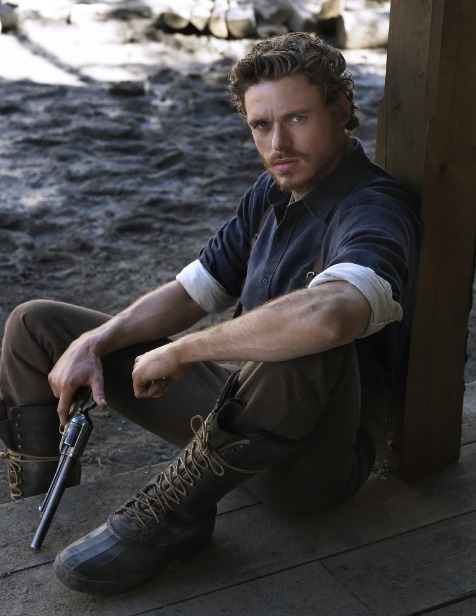

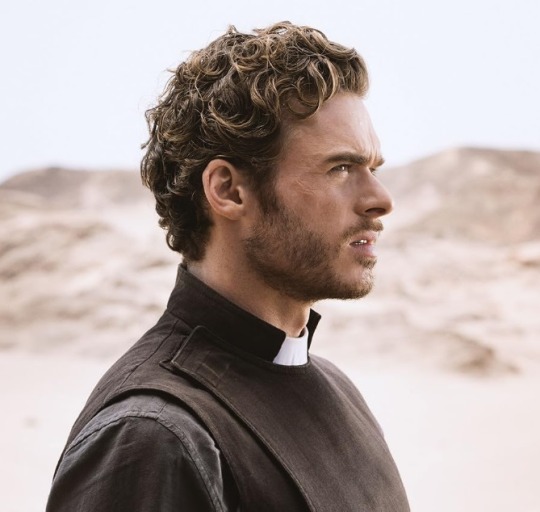
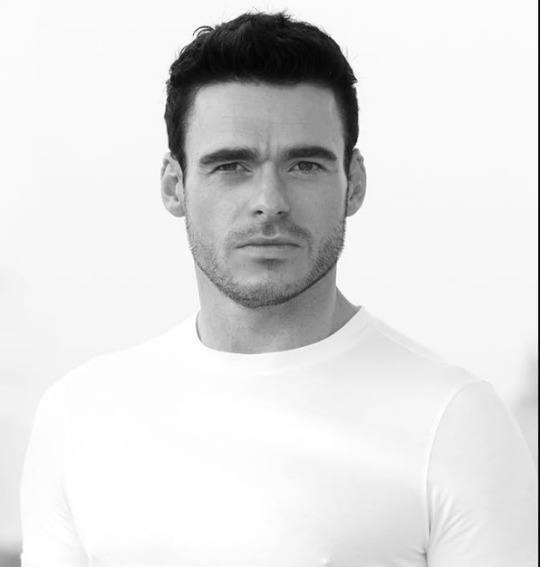
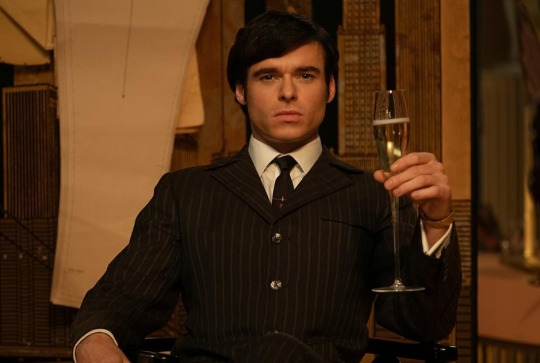
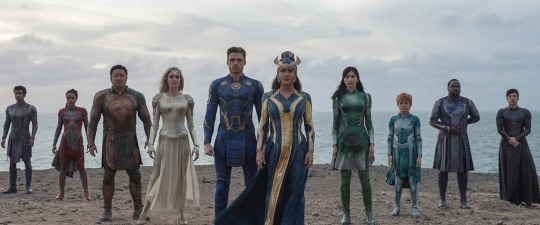
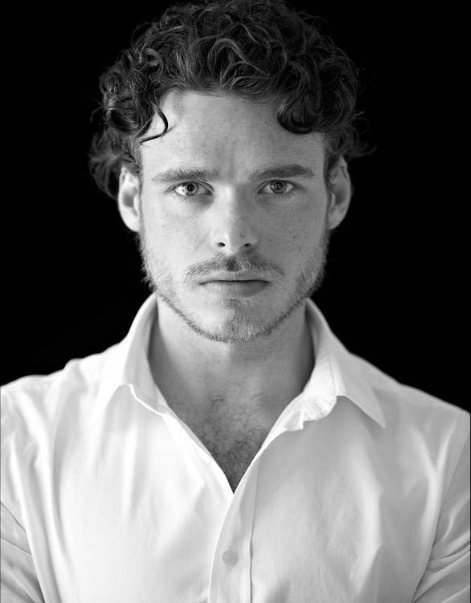

Happy Birthday Scottish actor Richard Madden born June 18th 1986 in Elderslie.
Richard was raised by his mother, Pat, a classroom assistant and his father, Richard, who worked for the fire service. He also has two sisters, Cara and Lauren.
His parents were “hippies”, he says, and their house was pretty open, with friends always piling in for big vegetarian meals. Madden spent a lot of time outside, in the woods behind their house. He has several injuries: he shows me where he shot his dad’s old air pistol and blew off part of his finger, then managed to wreck the same finger when he nailed a wooden plank to his skateboard, then crashed it, so apart from the Hippie parents it was much like most of our own days as bairns.
Despite growing up wanting to be an actor, Richard was very shy during his childhood. To overcome this, at age 11, he joined Paisley Arts Centre’s youth theatre program. In 1999 he was given the lead role as Sebastian Simpkins in BBC1’s children’s TV comedy series Barmy Aunt Boomerang, that’s him aged 12 in the first pic with co-star Toyah Wilcox.. By 2000, he’d made his feature film debut in the Iain Banks adaptation, Complicity.
After high school he was accepted to the Royal Scottish Academy of Music and Drama in Glasgow, Scotland and in 2007, he graduated.
Less than two years later, Richard had a recurring role as Dean McKenzie on the 2009 BBC series Hope Springs. Soon after, he landed the role of Ripley in the 2010 movie Chatroom, a film about a group of teenagers who encourage each other’s bad behaviours after meeting online. In the same year, Richard played punk band Theatre of Hate singer Kirk Brandon in Worried About the Boy, a TV film about the life of British singer-songwriter Boy George.
In 2011 Richard landed his breakthrough role as Robb Stark in the HBO fantasy-drama series Game of Thrones. Also in 2011, he played gay paramedic Ashley Greenwick on the short-lived British comedy-drama Sirens. During hiatus from filming Game of Thrones in 2013, Richard was cast to star as Prince Charming in the 2015 Disney film Cinderella.
Richard won his first Screen Actors Guild award in 2014 for the Discovery Channel mini-series, Klondike. He played Bill Haskell, one of two adventurers who travel to Yukon, Canada during the Klondike Gold Rush in the 1890s. He further enhanced his reputation as a good actor when he appeared in the BBC drama Bodyguard in 2018, the following year he played Lieutenant Joseph Blake in the film 2017 and was Elton John’s manager/lover in the biop of the star Rocketman.
In January 2019 Madden won a prestigious Golden Globe for his role as war veteran David Budd in the BBC show Bodyguard. He also appeared in the 2019 war movie 1917.
We last saw Richard in the movie, Eternals, which was okay, but nothing great, he is one of several actors being touted as the next James Bond,
Last year Richard starred in the Amazon Prime series Citadel, I've watcheit and was not really impressed with it,I think he does pull of the American accent well, but I noticed there have been people saying he doesnt, Madden revealed he spoke in the accent for two years straight to prepare for the series. The show has been earmarked for a second series. Richard is set to appear in the feature film Killer Heat next, it is in post production.
In July 2019, Madden received an honorary doctorate from his alma mater, the Royal Conservatoire of Scotland. When asked about his personal life during a New York Times interview following speculation about his relationships and sexuality, Madden stated: “I just keep my personal life personal.”
Madden was recently named one of ‘Scotland’s Sexiest Men' following a new study that identifies the most attractive features for men, he has competition though, also in the running are Bathgate’s David Tennant and Glasgow’s James McAvoy,
Richard, quizzed on what he would like to do next he sad “I’d like to do something in comedy. It’s nice to not… I mean we go to work every day and we’re like, ‘You’re gonna die today,’” he said, adding that he wanted to “do something fun for a minute.”
23 notes
·
View notes
Text
The top ones for Nicola are:
BAFTA TV Tea Party- Sat., Sept. 14, 2-5 p.m. honoring talent and creatives from the U.K., U.S. and beyond
MPTF’s 18th Annual - evening of Sat., Sept 14th - for Emmy nominees, presenters & winners
Netflix- Sunday, Sept 15th, 8 p.m. celebrating its impressive haul of Emmy nominations
Television Academy’s Governors Gala - evening of Sun., Sept. 15th Official post-show celebration.
18 notes
·
View notes
Note
26 for the ask game (╹◡╹)
26. Forgotten hero everyone should know about
This could have been a perfect occasion to talk about Claude-Antoine Prieur again, but given that I plan to devote him many future posts on my blog, I thought it would have been more appropriate to use this ask to share my knowledge about an important and unfortunately still rather unknown STEM personality, who truly inspired me when I was a young student. I'm referring to Sophie Germain.
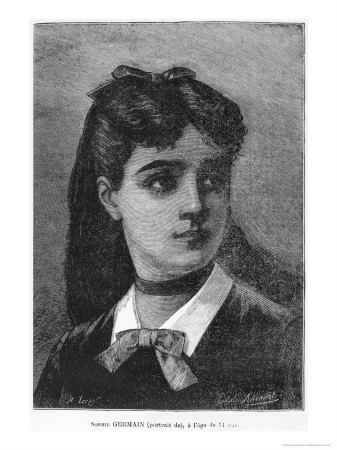
Born in Paris in 1776, Sophie was one of the rare mathematiciennes of the 18th-19th century. She had her first approach with mathematics during the days of the storming of the Bastille, when it was too dangerous for a young 13 years old girl to go outside. To pass the time, she turned to her father's library and a book named "Histoire des mathématiques" by Jean-Étienne Montucla captured her interest. The story of Archimedes narrated in the book fascinated her deeply, eventually leading her to start studying mathematics on her own through the works by famous mathematicians like Euler, Newton, Cousin. Her interest and dedication to the discipline was so strong, that during winter, when her parents denied her warm clothes and a fire in her bedroom to prevent her from studying she kept doing it anyway despite the cold; at the time maths wasn't considered appropriate as a studying discipline for a woman.
When the Polytechnic school opened in 1794, women couldn't attend, but the policy of the school allowed to everyone, who asked for them, notes of the lectures. She requested them under the pseudonym of Antoine-Auguste Le Blanc, a former student who had dropped out. Given that, as a student of the Polytechnic school, one was expected to send written observations about the lectures - a sort of homework - Germain wrote and sent hers to Joseph-Louis Lagrange, one of the teachers and renowned mathematician. The latter was so positively impressed by her essays that requested a meeting with the brilliant student LeBlanc, who unexpectedly had improved so much. She was then forced to reveal her identity. Lagrange was pleasantly surprised to realize Monsieur Le Blanc was in reality a young and talented woman and decided to support her, becoming her mentor.
One of her most noteworthy contribution to mathematics was in number theory, where she proved a special case of the so-called Last Fermat's Theorem (1), which has remained one of the hardest mathematical theorems to prove for more than three centuries and whose final proof was actually found only in 1994 by Andrew Wiles. Other important works of hers include treatises on elastic surfaces, one of which, Recherches sur la théorie des surfaces élastiques, awarded her a prize from the Paris Academy of Science in 1816.
Although she often faced prejudice for being a woman, Germain was praised and also supported by various well-known mathematicians of the time. Some of them include the aforementioned Lagrange, Legendre, who thanks to her work on the Fermat's theorem, was able to prove it for another special case; Cousin himself, Fourier, who managed to grant her the permission to follow the sittings held at the Paris Academy of science and last, but obviously not least, the great Gauss, who after Germain's death advocated for giving her an honorary degree in mathematics.
Notes
(1) In short, the Last Fermat's Theorem asserts that for n > 2 there are no integer solutions to the following equation:

with a, b, c being positive integers.
Sophie Germain proved the theorem for all numbers n equal to a prime p, so that 2p + 1 is also prime. The whole thing is much more complex that how I explained it, my aim was to write down a simple intoduction. If you want to read more about that I recommend you this link.
20 notes
·
View notes
Text




Audrey Hepburn and Richard Attenborough at the 18th British Film Academy Awards after receiving their awards on 30 March 1965 at The Talk of the Town in London.
Richard Attenborough, winner of the British Actor Award for his performances in Guns at Batasi and Seance on a Wet Afternoon. Audrey Hepburn is the winner of the British Actress Award for her performance in Charade.
#audrey hepburn#1960s#old hollywood glamour#old hollywood#fashion#classic#vintage#photography#style#givenchy#1965#richard attenborough#baftas
30 notes
·
View notes